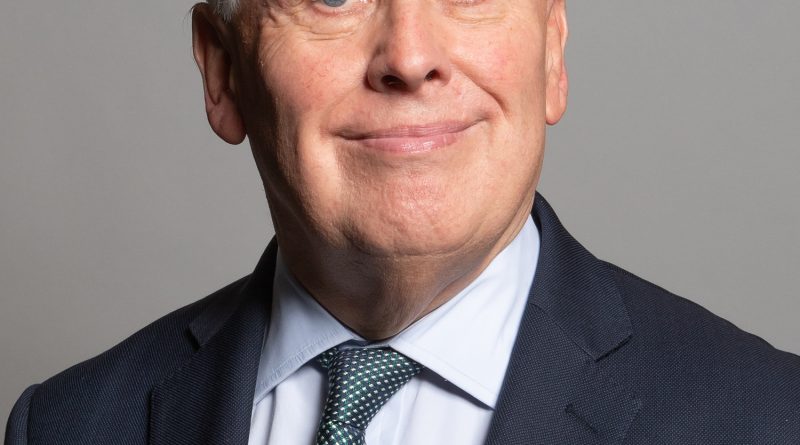Robert Neill – 2023 Speech on Funding and Support for Classical Music
The speech made by Sir Robert Neill, the Conservative MP for Bromley and Chislehurst, in the House of Commons on 29 March 2023.
I only intervene briefly in this debate to repeat my congratulations to the hon. Member for Enfield, Southgate (Bambos Charalambous) on securing it, and to make a few quick points to the Minister to supplement those that he has already made.
I declare my interest as chair of the all-party parliamentary group on opera, and I have performers in my family as well. It is precisely because of that connection that I have seen at first hand the effect that the cuts imposed by Arts Council England have had on people who are dedicated professionals and who contribute to the economy of this country in a significant manner. We should not forget the value of classical music to the arts offer of this country, but it also makes a massive change in enriching lives—be it teachers in schools enriching the lives of children—and in enriching communities through community choirs and concerts such as the Bromley festival of speech and music, of which I have the honour to be joint president with my wife, bringing folk together and using music to pull them together.
However, all that needs an infrastructure and an ecosystem to support it, and some of that requires public support. By the nature of the profession, it cannot entirely operate from the ticket office. That is why the damage done by Arts Council England’s behaviour is so extreme and egregious. To cut the very companies that have done more to promote access to the arts is perverse in the extreme.
English National Opera in particular performs in English—it is the only company that does—and it is more than willing to tour outside London, if given the chance, but it has not been. It has a more diverse audience and a more diverse workforce than any other company. It is much more user-friendly, if I can put it that way, to those who have not had an experience in classical music and the arts to get into. I have been to recent productions at the ENO. It has a much younger, more diverse and enthusiastic audience than might be seen in many other houses. Every one of its performances is selling at about 95% box office capacity.
We have the perverse situation of the director of music, heaven forbid, for Arts Council England claiming that she did not believe there is any longer an audience for “grand opera”, whatever she meant by that. I always rather thought grand opera was in five acts by Giacomo Meyerbeer in Paris in the 1850s. It is not putting on La Bohème, Carmen or Akhnaten, a modern opera by Philip Glass that is sold out at the ENO. If the people who are supposed to be running the arts do not understand the art form themselves, where on earth are we going to get to?
The behaviour of Arts Council England has left Ministers exposed to criticism, because although it is an arms-length body, ultimately the blame will fall on Government. It also demonstrates that there are serious questions about its current viability as the guardians of arts in England. Its mission statement, when it was created, was to spread excellence in the arts throughout the country and to make excellence more accessible. As I pointed out earlier, and as the hon. Member for Enfield, Southgate rightly said, its decisions have actually been the reverse. The former Secretary of State, my right hon. Friend the Member for Mid Bedfordshire (Ms Dorries), condemned the way Arts Council England carried out her ministerial instruction. Ministers can give strategic instruction to Arts Council England, although, of course, they do not get involved in individual funding decisions. I say to my hon. Friend the Minister: that which is instructed can also be uninstructed. There is no doubt that Ministers can set the tone in the way in which Arts Council England supports things.
There is a way forward to save the ENO, with sensible compromise and a very modest injection of funds in the overall scheme of things, which will keep the company in being and enable it to continue to do good work. I hope the same will be done with such things as the Glyndebourne tour. It is bizarre that some of my friends in the corporate world—my corporate lawyer friends, dare I say it?—will be able to pay the prices to go to the Glyndebourne festival, where there is no cost to the public purse, but the public funding that enabled Glyndebourne to go out to non-traditional audiences in places such as the Marlowe Theatre in Canterbury, or to Northampton or to Norwich, is the very thing that has been cut. It is exactly the reverse of what was intended. An organisation that does that has to answer serious questions about both its competence and its processes.
I hope the Minister will reflect on three points. First, Arts Council England announced it will have an independent review of its approach to opera and classical music. I think the Minister is entitled to say to it, as a matter of strategic importance, that that must be genuinely independent. At the moment, there is a real suggestion and concern that Arts Council England—its members have about 162 notes in their register of interests within the same sector—will be marking its own homework. There has to be a properly independent and rigorous review with the involvement of people—there are many of them in the UK—who are active professionals.
Secondly, Arts Council England itself needs a review. It is due for a departmental review before too long anyway, as it is some time since its last one. It ought to look at its transparency and decision-making processes. The board papers are never published. The information available would never pass muster in a local authority or health service trust, for example. That must change and the review should look at that, as it should at the composition of the board and the recruitment of its executive team.
Thirdly, if I might return to a separate matter, touring visas have been a real problem for many people. Now that we are in a much better position with the Windsor agreement and a better relationship with the European Union, there is the suggestion, which has been signed off as being entirely consistent with the trade and co-operation agreement by Sarah Lee KC, that we could have a bespoke visa-waiver agreement with the EU for touring artists for up to 90 days in a period of 180 days. That would be doable and we would not have to reopen the TCA. With the better atmosphere that the Prime Minister has now created, that would be a practical way forward.
Those are sensible points that I hope the Minister will say she will take away and act on.


